From July 8-12, 2019, the first UCAS gravitational wave summer school held successfully at Yanqihu Campus. UNESCO International Centre for Theoretical Physics Asia-Pacific (ICTP-AP) and Consortium of Gravitational Wave Detection Taiji Program in Space jointly sponsored this summer school.
Secretary-General of Taiji Consortium, prof. Congfeng Qiao (College of Physics, UCAS) and member of KAGRA, prof. Hongbo Jin (National Astronomical Observatory), organized this summer school. The summer school invited seven experienced lecturers from domestic and aboard, they are:
- Antoine Klein (University of Birmingham, Member of LISA)
- Peng Xu (Lanzhou University, Member of ‘Taiji’)
- Wenbiao Han (Shanghai Astronomical Observator, Member of ‘Taiji’)
- Yueliang Wu (UCAS, Chief Scientist of ‘Taiji’ Project)
- Yunyong Wang (Institute of High Energy Physics, Member of LSC)
- Zhihui Du (Tsinghua University, Member of LSC)
- Zhoujian Cao (Beijing Normal University, Member of ‘Taiji’)
A series of lectures of gravitational wave related studies were conducted in the next five days. Outstanding students from 14 universities and research institutes participated in this short-term training.
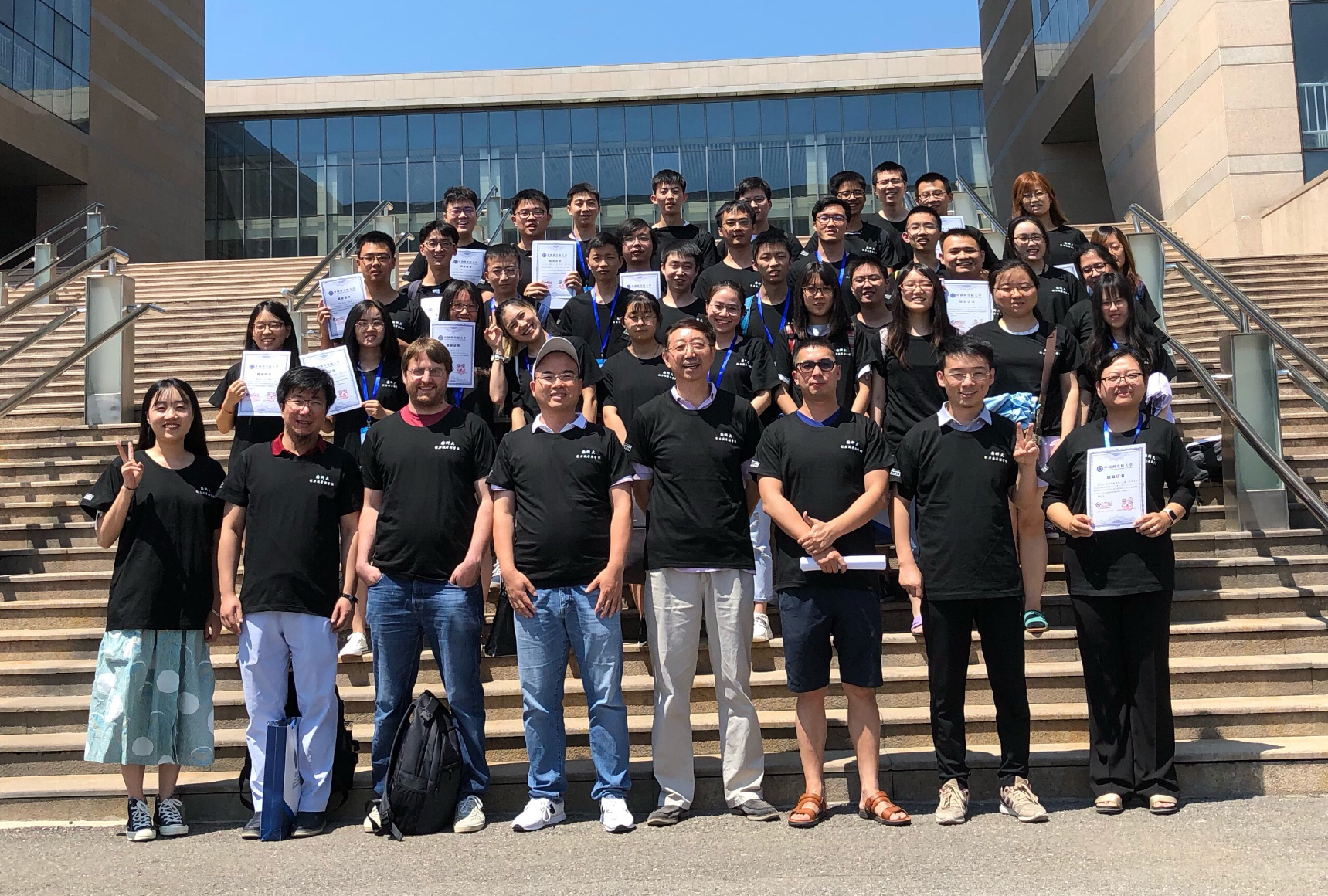
Group photo of 2019 UCAS Gravitational Wave Summer School
Topics of the lectures were mainly focus on gravitational wave detection technology, gravitational wave source and data analysis and processing.
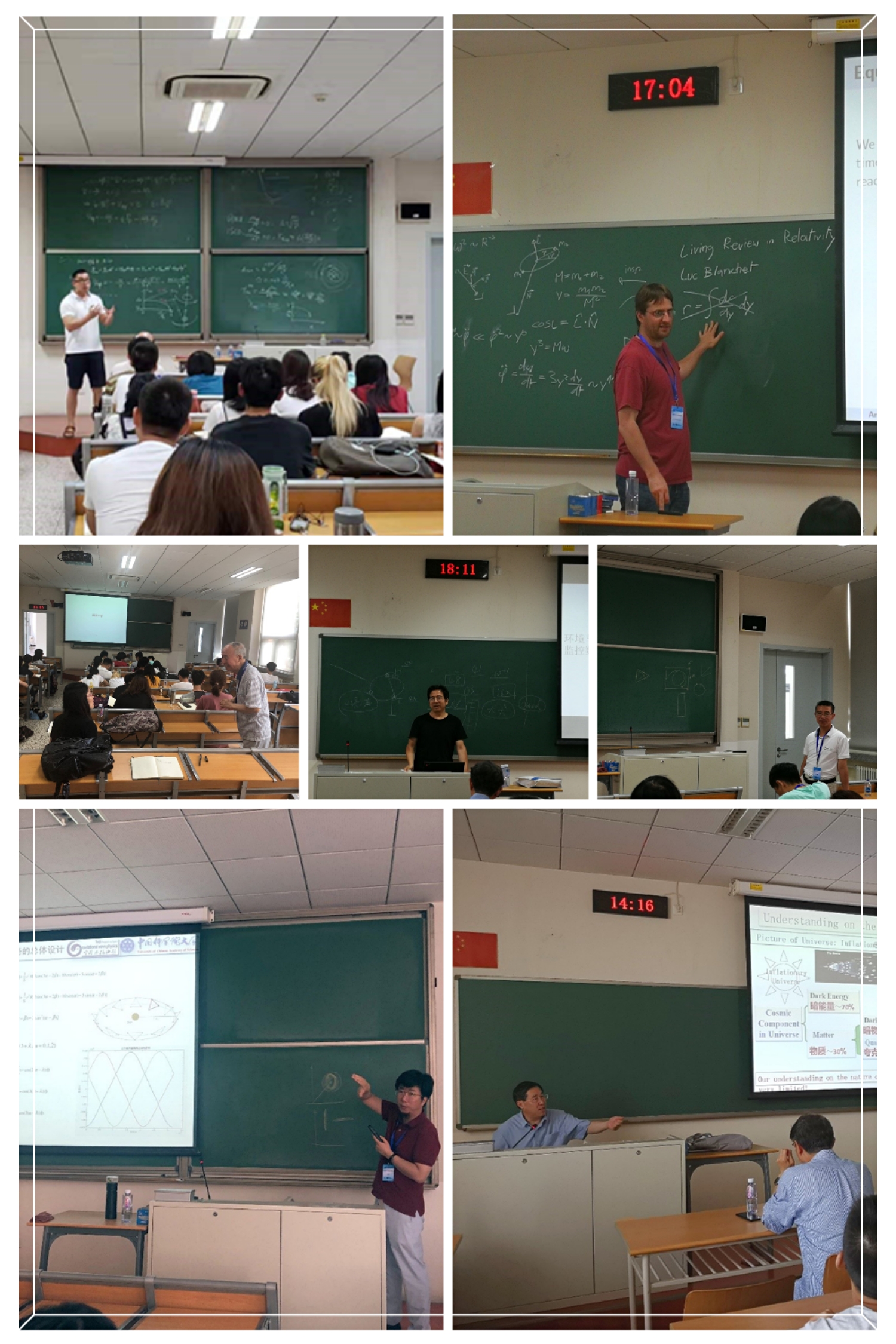
Lecturers were introducing knowledge about gravitational wave
All the lecturers had working experience in gravitational wave research projects in different countries. At the beginning of the summer school, the chief scientist of ‘Taiji’ project, director of ICTP-AP, prof. Yueliang Wu shared the development, scientific objectives and research road of ‘Taiji’ project. In the next five days, experienced experts from ‘Taiji’ project introduced part of their mission in this project and shared their achievements in gravitational wave studies.
Looking back to 2015, America, LIGO first directly detected the existence of gravitational waves in human history. The summer school invited two lecturers who worked in the LIGO Scientific Collaboration (LSC) team. They kindly passed on their rich experience and advanced thinking to the students. Moreover, LISA is the gravitational wave detection project from the European Space Agency. Specialist from LISA mainly focused on improving students’ understanding of waveform modeling for comparable-mass systems during the summer school.
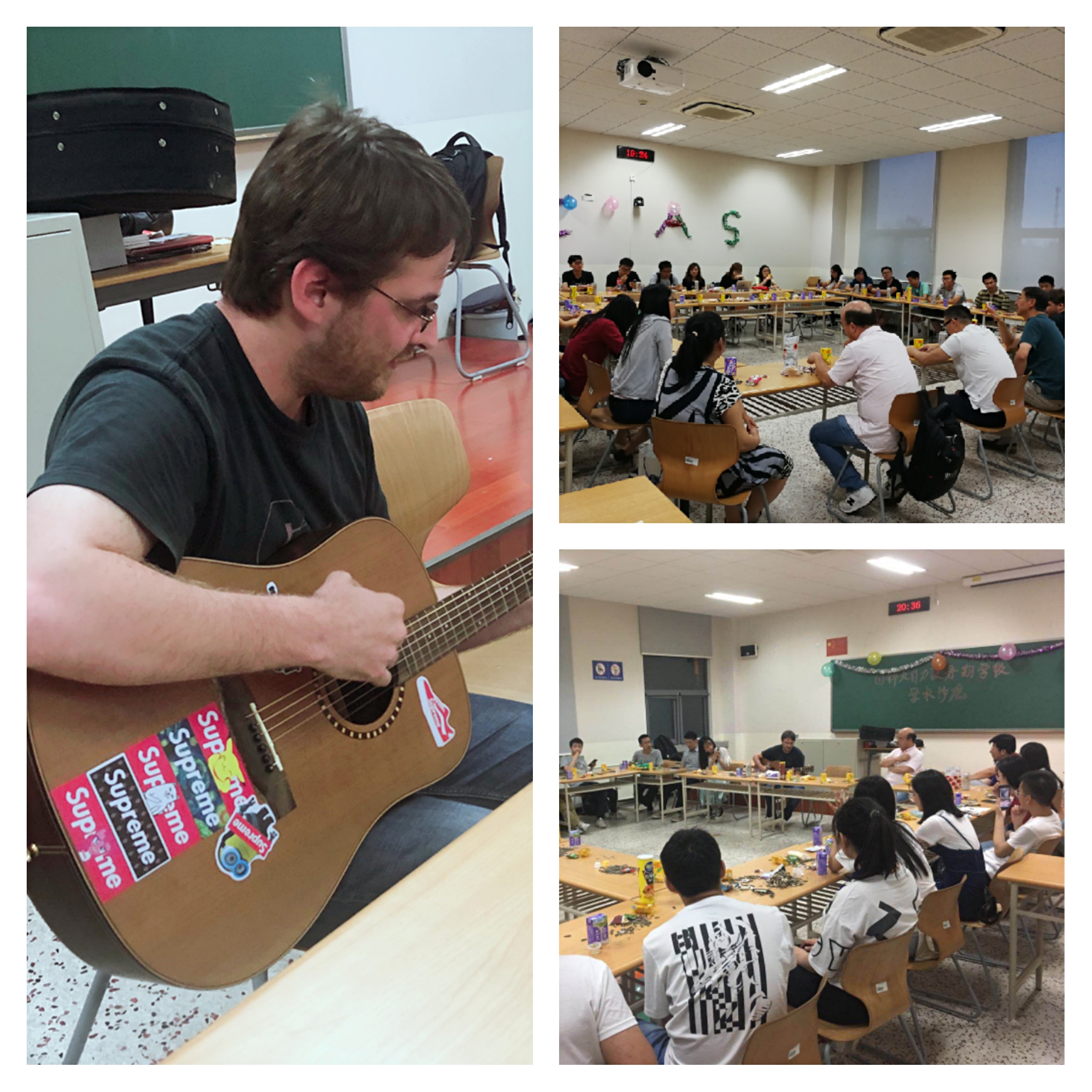
Prof. Klein performed guitar playing at the salon event
An academic salon carried out during the summer school. In a relaxed and pleasant atmosphere, students shared their research directions, discussed and exchanged their opinions of frontier and hot academic topics.
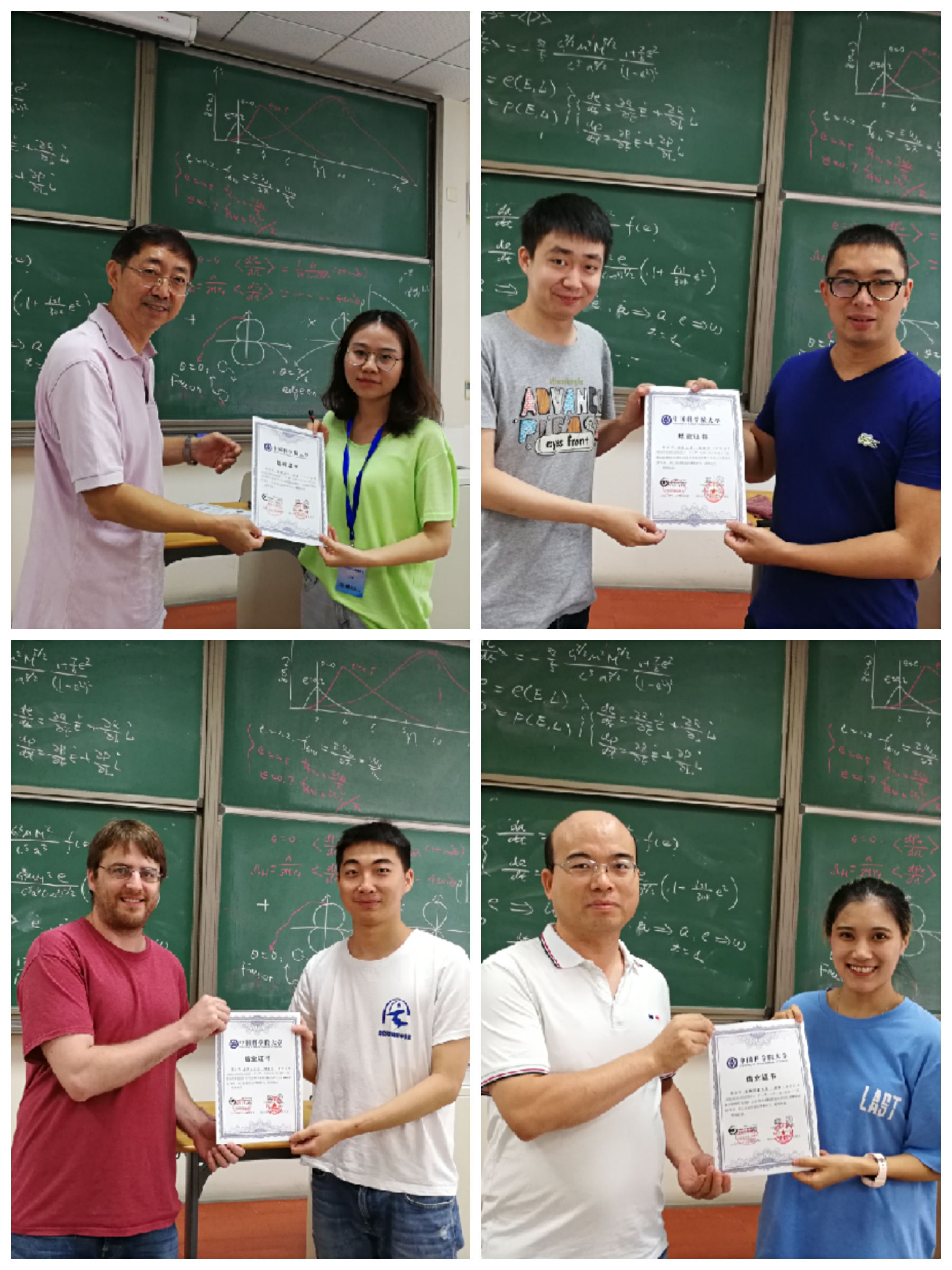
On July 12, teachers issued certificates of completion for students.
The ‘2019 gravitational wave summer school’ will help young talents in relevant research fields to have a better understanding of the frontiers of international disciplines. Furthermore, it plays a positive role in promoting the training of reserve talents. In the future, they may become members of the ‘Taiji’ project to contribute to the exploration of gravitational waves in space.
Further Reading – ‘Taiji’ Program in Space
The Taiji program is proposed to detect GWs with frequencies covering the range of 0.1 mHz to 1.0 Hz with higher sensitivity around 0.01–1 Hz than eLISA (see Table 1). The Taiji program proposes to use a triangle of three spacecraft in orbit around the Sun (see Fig. 1). Laser beams are sent both ways between each pair of spacecraft, and the differences in the phase changes between the transmitted and received laser beams at each spacecraft are measured. The preliminary design for the Taiji mission is based on 3-million-kilometre separations between the spacecraft, and the expected launch date is about 2033. The purpose of the Taiji program is to study the most challenging issues concerning massive black holes, such as how the intermediate mass seed black holes were formed in the early universe, whether the dark matter could form a black hole, how seed black hole grows into a large or extremely large black holes and what is the nature of gravity.
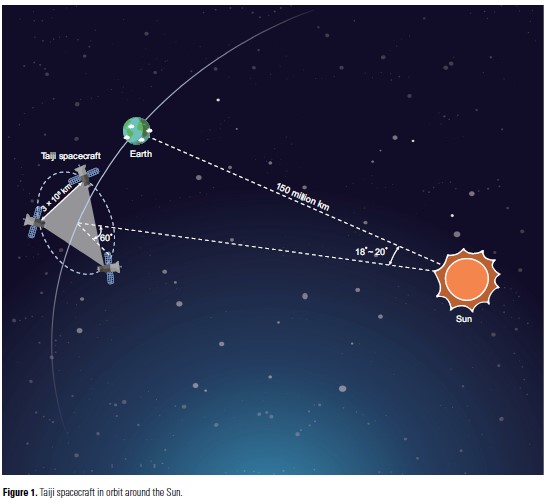
‘Taiji’ spacecraft in orbit around the sun
Author: Fanzi Meng Min Zhang
Photo: Zhiping Shang Xinyue Zhang




.jpg?x-oss-process=style/news)
